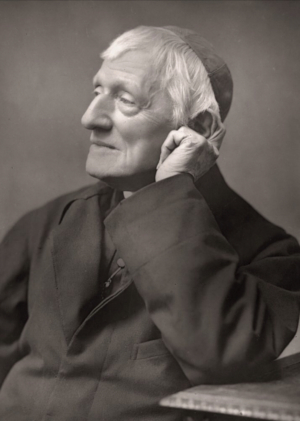When we think of the Synod of Dort and their rulings (canons) against the Remonstrants (Arminians) we tend to think about the doctrine of sin or the doctrines of unconditional grace, election, and the like but there were structural, subterranean issues at . . . Continue reading →
April 2019 Archive
The Reformation Of Vocation
In the period between the early post-apostolic church (e.g., the 2nd and 3rd centuries AD) and the Reformation (beginning in the early 16th century AD) the church came to develop some unbiblical and therefore unhelpful and unhealthy ways of relating creation and . . . Continue reading →
Canons Of Dort (26): Perseverance Is Good News For Sinners
Under this head of doctrine we have considered the errors that Synod rejected—the Remonstrants turned the perseverance into a covenant of works—so now we turn to what Synod confessed positively about how Christ graciously preserves his people through their pilgrimage in this . . . Continue reading →
See You In Fort Worth—May 24 & 25, 2019 For The Abraham Paradigm
If you are in the Metroplex May 24–25, it would be good to see you at the Spring conference hosted by Covenant OPC (10750 Westpoint Blvd Fort Worth, TX 76108). The conference is: The Abraham Paradigm. You may register online before the . . . Continue reading →
Romans Series: The Power of God For Salvation (22)
Romans is one of the greatest resources available to the Christian faith and life. Written in the mid-to late AD 50s to the congregation in Rome, Paul sent this pastoral letter to make clear the gospel, that salvation is from the Lord, . . . Continue reading →
Sometimes The QIRC Leads To Rome
As I was running errands this past Saturday I listened to a podcast in the Ricochet network hosted by Mark Bauerlein, himself a convert to Rome from atheism, in which he interviewed a convert to Rome (from evangelicalism) about the impending canonization . . . Continue reading →
AGR: What’s Good About Good Friday?
Easter is a busy season for pastors so I am filling for Chris today on a special episode of AGR. It is Good Friday and I thought it would be good to think a bit about that expression, “Good Friday.” What an . . . Continue reading →
Commandment Thursday
This is Easter Week 2019. On this day, since the late 4th century (393) the Western (Latin) church has remembered that our Lord instituted the sign and seal of the renewal of the covenant of grace, holy communion (the Lord’s Supper). On . . . Continue reading →
Choose Your Metaphors Carefully: The Church Is A Pasture Not A Business
35 years ago, when I began seminary, the “church growth” movement was hitting its stride. In a course taught by an adjunct professor with a Harvard MBA we were taught how be efficient just the way successful CEOs are. Later, in the . . . Continue reading →
Romans Series: The Power of God For Salvation (21)
Romans is one of the greatest resources available to the Christian faith and life. Written in the mid-to late AD 50s to the congregation in Rome, Paul sent this pastoral letter to make clear the gospel, that salvation is from the Lord, . . . Continue reading →
Did God Make Mayor Pete Gay?
Sunday is the Christian Sabbath, it is a day on which Christians set aside time to pray, to gather for corporate worship, and to think and speak about God. So, in that regard, the remarks this past Sunday by Pete Buttigieg, the . . . Continue reading →
John Owen Was Not A Baptist (Part 2)
Obs. I. Believers under the new testament have lost nothing, no privilege that was enjoyed by them under the old. Many things they have gained, and those of unspeakable excellency, but they have lost nothing at all. Whatever they had of privilege . . . Continue reading →
William Gurnall: Threats Are The Native Language Of The Law
The news which the gospel hath in its mouth to tell us poor sinners is good. It speaks promises, and they are significations of some good intended by God for poor sinners. The law, that brings ill news to town. Threatenings are . . . Continue reading →
Romans: The Power Of God For Salvation (20)
Romans is one of the greatest resources available to the Christian faith and life. Written in the mid-to late AD 50s to the congregation in Rome, Paul sent this pastoral letter to make clear the gospel, that salvation is from the Lord, . . . Continue reading →
On Samuel, Social Justice, And The Prophetic Office Of The Church
It is not difficult to find calls for the church to be “prophetic” especially toward the end of “social justice.” Of course we should favor social justice since nature and Scripture (e.g., Rom 13:1–7) both teach us that it is the function . . . Continue reading →
They Are Coming For Your Children
There have been, arguably, three sexual revolutions in the modern period. If we think of the early stages of feminism, in the late 19th and early 20th centuries, that was part of a sexual revolution that included a loosening of heterosexual mores. . . . Continue reading →
Audio: With Mike Abendroth (NoCo Radio) On What Is Faith?
There is a long history in Christianity of turning the covenant of grace into a covenant of works. This happens in a variety of ways. One way this can happens is by changing the nature of faith in salvation. In the Middle . . . Continue reading →
Office Hours: With Carl Trueman “And Miles To Go Before I Sleep”
Carl Trueman has been a university professor, seminary professor, a visiting professor at Princeton University, and a bi-vocational pastor. He is now Professor of Biblical and Religious Studies at Grove City College. He is also an old friend. We met in the . . . Continue reading →












